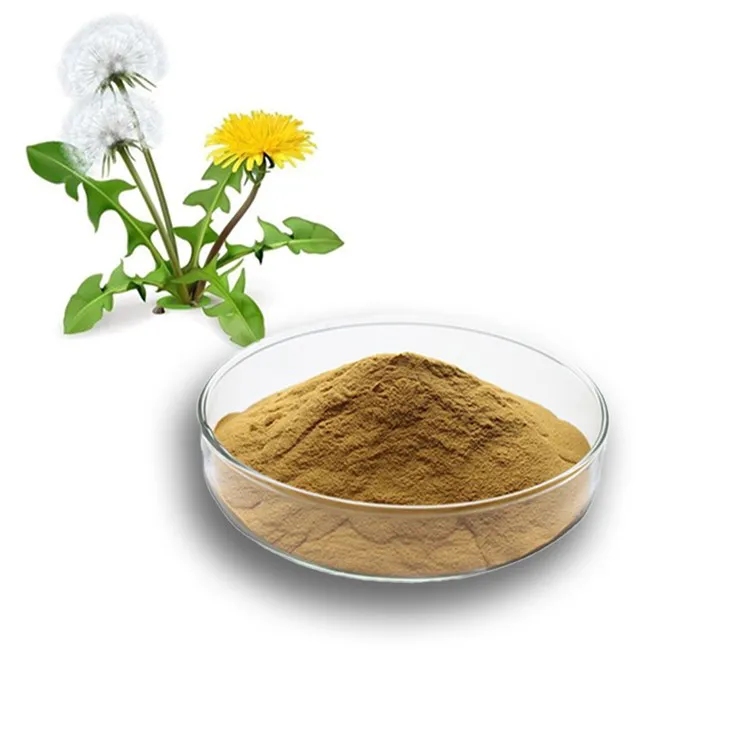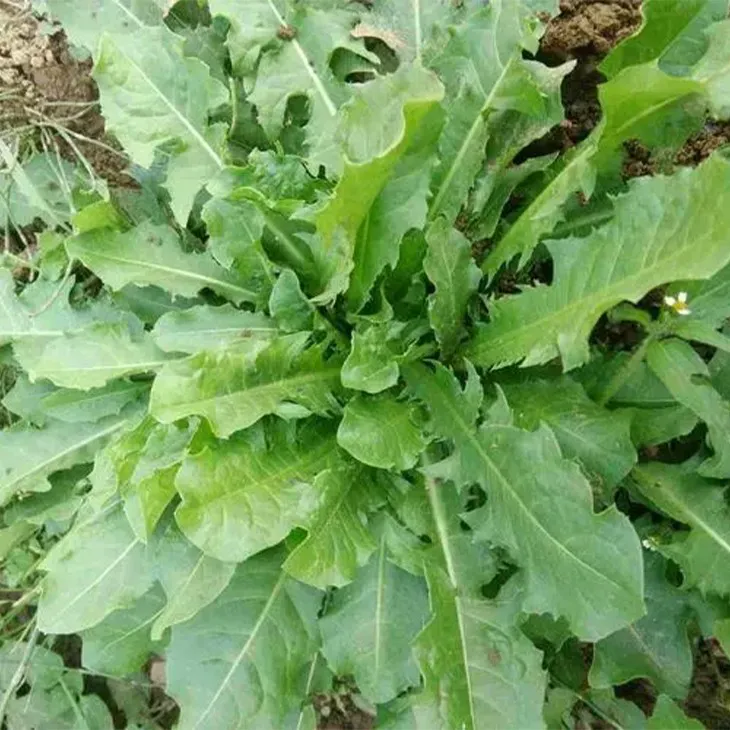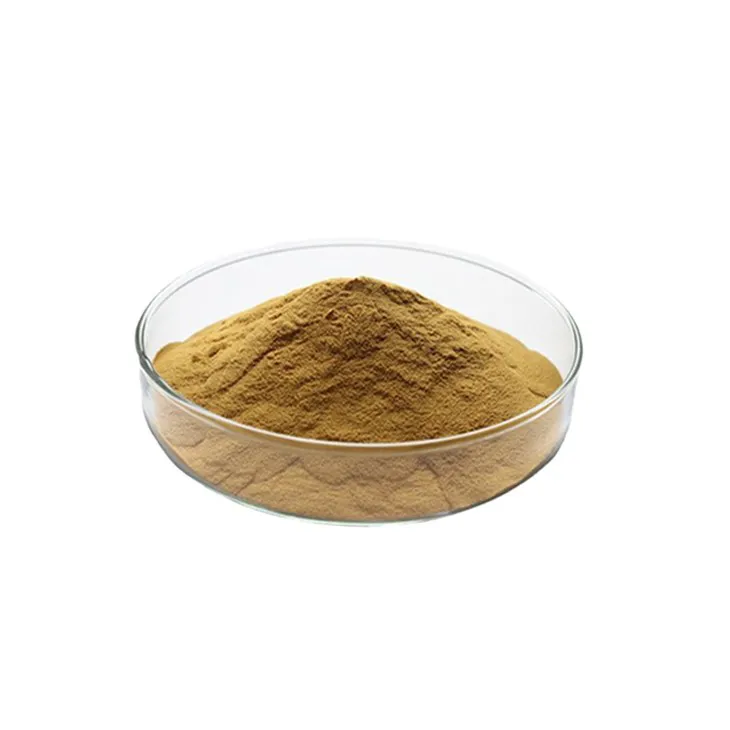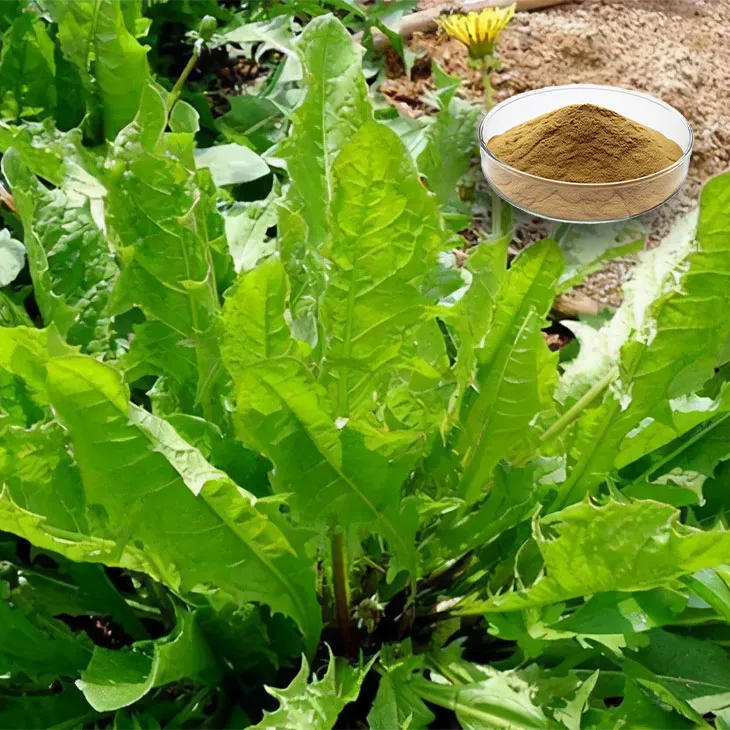- 0086-571-85302990
- sales@greenskybio.com
What is dandelion leaf extract? Definition, types, history and nutritional value.
2024-12-18

1. Definition of Dandelion Leaf Extract
Dandelion Leaf Extract is a substance derived from the leaves of the common dandelion (Taraxacum officinale). It is obtained through various extraction methods. These methods are designed to isolate and concentrate the beneficial compounds present in the dandelion leaves. The extraction process typically involves the use of solvents, such as ethanol or water, to draw out the active components. The resulting extract is a concentrated form of the natural substances found in the dandelion leaves, which can then be used in a variety of applications, including in the production of dietary supplements, herbal remedies, and skincare products.

2. Types of Dandelion Leaf Extract
2.1 Solvent - Based Extracts
- Ethanol - Based Extracts: Ethanol is a commonly used solvent for extracting dandelion leaf extract. Ethanol - based extracts are often preferred because ethanol can effectively dissolve a wide range of compounds present in the dandelion leaves. This includes flavonoids, phenolic acids, and terpenes. The use of ethanol also helps in preserving the extract, as it has antimicrobial properties. These extracts are typically more concentrated and may have a longer shelf - life compared to other types of extracts.
- Water - Based Extracts: Water can also be used as a solvent for extracting dandelion leaf extract. Water - based extracts are considered more natural and are often used in products where a "pure" or "organic" label is desired. However, water may not be as effective as ethanol in extracting certain hydrophobic (water - hating) compounds. Water - based extracts may contain a different profile of active compounds compared to ethanol - based extracts. They are often used in herbal teas or in some mild - action dietary supplements.
2.2 Standardized vs. Non - Standardized Extracts
- Standardized Extracts: These are dandelion leaf extracts where the concentration of specific active compounds has been adjusted to a certain level. For example, a standardized dandelion leaf extract may be guaranteed to contain a specific percentage of flavonoids or phenolic acids. This allows for more consistent dosing in products such as dietary supplements. Standardized extracts are often used in the pharmaceutical and nutraceutical industries where precise control over the active ingredients is required.
- Non - Standardized Extracts: In contrast, non - standardized extracts do not have a specific concentration of active compounds guaranteed. These extracts may vary in their composition depending on factors such as the source of the dandelion leaves, the extraction method, and the batch. Non - standardized extracts are more commonly found in traditional herbal remedies where the focus is on the overall synergy of the plant's compounds rather than on a specific concentration of individual components.

3. History of Dandelion Leaf Extract
Dandelion has a long and rich history of use in herbal medicine. The use of dandelion leaf extract dates back thousands of years. Ancient civilizations, such as the Greeks and the Romans, were among the first to recognize the potential health benefits of dandelions. The Greeks used dandelions for various medicinal purposes, including as a diuretic and to treat digestive problems. The Romans also incorporated dandelions into their medical practices, believing that they could help with liver and kidney ailments.
In traditional Chinese medicine, dandelions have been used for centuries. Dandelion leaf extract was used to clear heat, detoxify the body, and improve digestion. In European folk medicine, dandelions were a common ingredient in herbal remedies for a wide range of conditions, from skin problems to rheumatism. Over time, the knowledge of dandelion's medicinal properties has been passed down through generations, and with the development of modern extraction techniques, dandelion leaf extract has become more accessible and is now being studied more intensively for its potential health - promoting effects.

4. Nutritional Value of Dandelion Leaf Extract
4.1 Vitamins
- Vitamin C: Dandelion leaf extract is a good source of vitamin C. Vitamin C is an essential nutrient that plays a crucial role in the immune system. It helps in the production of white blood cells, which are responsible for fighting off infections. Additionally, vitamin C is an antioxidant, which means it can protect cells from damage caused by free radicals. Free radicals are unstable molecules that can cause oxidative stress in the body, leading to various health problems such as aging, cancer, and heart disease. The presence of vitamin C in dandelion leaf extract makes it a valuable addition to products aimed at promoting overall health and immunity.
- Other Vitamins: Dandelion leaf extract also contains other vitamins in smaller amounts, such as vitamin A (in the form of beta - carotene), vitamin K, and some B - vitamins. Vitamin A is important for vision, skin health, and immune function. Vitamin K is essential for blood clotting, and B - vitamins play a role in energy metabolism and nerve function.
4.2 Minerals
- Potassium: Potassium is one of the main minerals found in dandelion leaf extract. Potassium is an electrolyte that is involved in many physiological processes in the body, including maintaining proper heart function, regulating blood pressure, and balancing fluid levels. A diet rich in potassium can help reduce the risk of hypertension (high blood pressure) and stroke. Dandelion leaf extract can contribute to potassium intake, especially for those who may not get enough potassium from their regular diet.
- Other Minerals: In addition to potassium, dandelion leaf extract also contains other minerals such as calcium, magnesium, and iron. Calcium is important for bone health, muscle function, and nerve transmission. Magnesium is involved in over 300 enzymatic reactions in the body and is important for energy production, muscle relaxation, and DNA synthesis. Iron is essential for the production of hemoglobin, which is responsible for carrying oxygen in the blood.
4.3 Phytochemicals
- Flavonoids: Dandelion leaf extract is rich in flavonoids, which are a type of polyphenolic compound. Flavonoids have antioxidant, anti - inflammatory, and anti - microbial properties. Some of the flavonoids found in dandelion leaves include luteolin and apigenin. These flavonoids can help protect the body against chronic diseases such as cancer, heart disease, and neurodegenerative diseases. They also contribute to the anti - inflammatory effects of dandelion leaf extract, which can be beneficial for conditions such as arthritis and skin inflammation.
- Phenolic Acids: Phenolic acids are another group of phytochemicals present in dandelion leaf extract. These compounds also have antioxidant properties and can help protect cells from oxidative damage. Some of the phenolic acids found in dandelion leaves include caffeic acid and chlorogenic acid. These acids have been shown to have various health - promoting effects, such as improving blood sugar control and reducing the risk of certain cancers.
- Terpenes: Terpenes are volatile compounds found in dandelion leaf extract. They are responsible for the characteristic aroma of dandelions. Terpenes also have potential health benefits, including anti - fungal, anti - viral, and anti - inflammatory properties. Some terpenes found in dandelion leaves may also have sedative effects, which could be useful for promoting relaxation and reducing stress.

5. Conclusion
Dandelion leaf extract is a versatile and potentially beneficial substance with a long history of use in herbal medicine. Its different types, depending on the extraction method and standardization, offer a range of options for various applications. The rich nutritional value, including vitamins, minerals, and phytochemicals, makes it an interesting ingredient for health - promoting products. However, more research is still needed to fully understand its mechanisms of action and potential side effects. As with any herbal supplement, it is important to consult a healthcare professional before using products containing dandelion leaf extract, especially for those with pre - existing medical conditions or taking other medications.
FAQ:
What is the definition of dandelion leaf extract?
Dandelion leaf extract is a substance obtained from the leaves of the common dandelion. It is often used in various products, especially in the field of herbal medicine and health - promoting supplements.
How many types of dandelion leaf extract are there?
The types of dandelion leaf extract mainly depend on the solvents used for extraction. Different solvents can result in different chemical compositions and properties of the extract, but specific numbers of types may vary depending on different classification methods in the industry.
What is the history of dandelion leaf extract in herbal remedies?
Dandelion has a long history in herbal remedies. For centuries, it has been used in traditional medicine systems. Dandelion leaf extract, as a part of this, was used for various purposes, such as to support digestion, as a diuretic, and for its potential anti - inflammatory properties.
What are the main nutritional values of dandelion leaf extract?
Dandelion leaf extract contains valuable nutrients. It is a source of vitamin C, which is important for the immune system and skin health. Potassium in it helps in maintaining proper heart and muscle function. Beta - carotene, which can be converted to vitamin A, is also present and is beneficial for vision and cell growth.
How is dandelion leaf extract used in health - promoting products?
Dandelion leaf extract is used in health - promoting products in different ways. It can be included in dietary supplements in the form of capsules or tablets. In some herbal teas, it is added for its potential health benefits. It may also be used in topical products for skin health, although more research is often needed to fully understand and prove these applications.
Related literature
- The Nutritional and Medicinal Properties of Dandelion (Taraxacum officinale): A Review"
- "Dandelion Leaf Extract: A Promising Natural Ingredient for Health"
- "Historical and Contemporary Uses of Dandelion in Herbal Medicine"
- ▶ Hesperidin
- ▶ citrus bioflavonoids
- ▶ plant extract
- ▶ lycopene
- ▶ Diosmin
- ▶ Grape seed extract
- ▶ Sea buckthorn Juice Powder
- ▶ Beetroot powder
- ▶ Hops Extract
- ▶ Artichoke Extract
- ▶ Reishi mushroom extract
- ▶ Astaxanthin
- ▶ Green Tea Extract
- ▶ Curcumin Extract
- ▶ Horse Chestnut Extract
- ▶ Other Problems
- ▶ Boswellia Serrata Extract
- ▶ Resveratrol Extract
- ▶ Marigold Extract
- ▶ Grape Leaf Extract
- ▶ blog3
- ▶ blog4
- ▶ blog5
-
Beetroot juice Powder
2024-12-18
-
Lotus leaf extract
2024-12-18
-
Quercetin
2024-12-18
-
Citrus Aurantium Extract
2024-12-18
-
Uridine-5'-monophosphate Disodium salt
2024-12-18
-
Kelp Extract Powder
2024-12-18
-
Aminolevulinic acid
2024-12-18
-
Tongkat Ali Extract Powder
2024-12-18
-
Hesperidin
2024-12-18
-
Artichoke Leaf Extract
2024-12-18





















